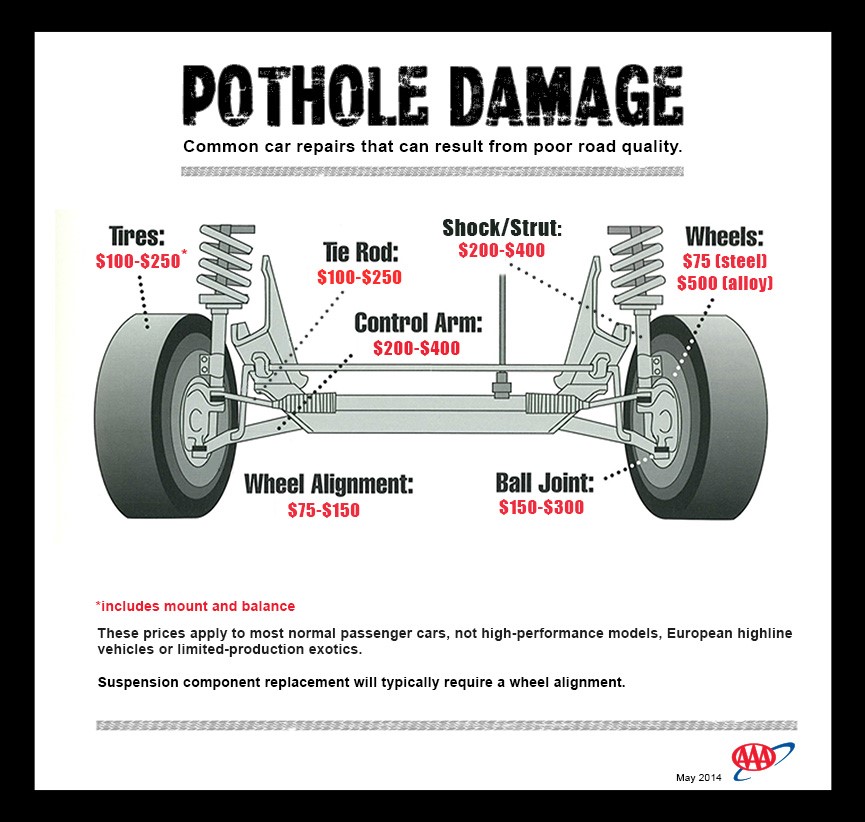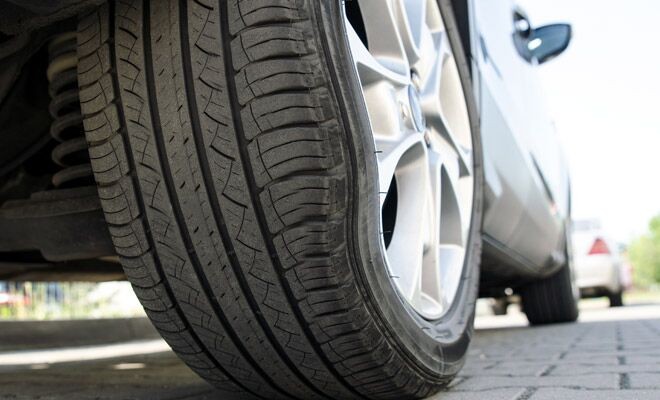How to Tell If Pothole Damaged Car
To tell if a car is damaged by a pothole, look for tire/wheel damage and suspension issues. Pothole damage signs include steering problems and unusual noises while driving or braking.
Potholes can cause costly damage to cars, creating safety risks and affecting overall performance. Identifying pothole damage early is crucial to prevent further issues and costly repairs. By recognizing common pothole damage signs, car owners can address problems promptly, ensuring the vehicle remains safe and properly maintained.
Understanding how to spot pothole damage and taking timely action can help extend the lifespan of a car and enhance driving experience. Let’s explore in detail how to detect if a vehicle has been damaged by potholes and the steps to address any resulting issues.

Credit: www.aaa.com
Signs Of Pothole Damage
Potholes can wreak havoc on your car, causing damage to various components such as the tires, wheels, suspension, and alignment. Recognizing the signs of pothole damage is crucial in order to address any potential issues and prevent further damage. Here are some key indicators that your car may have been affected by potholes:
Visible Tire And Wheel Damage
Check your tires and wheels for visible signs of damage such as bulges, cracks, or dents. These can indicate that your tires have been compromised by potholes, potentially leading to a blowout or loss of tire pressure.
Suspension And Alignment Problems
If your car pulls to one side, experiences uneven tire wear, or the steering wheel doesn’t return to center after turning, it could be a sign of suspension or alignment issues resulting from pothole damage.
Strange Noises Or Vibrations
Unusual noises or vibrations coming from your car, such as clunking or knocking sounds, could be indicative of suspension damage caused by potholes. If you notice any of these symptoms, it’s important to have your car’s suspension system inspected by a professional.
Leaking Fluids
Inspect your car for any signs of leaking fluids, such as oil, coolant, or transmission fluid. Pothole damage can cause cracks in the vehicle’s components, leading to fluid leaks that can result in serious damage if left unaddressed.
Uneven Tire Wear
Examine your tires for uneven wear patterns, which may indicate misalignment or suspension issues caused by pothole damage. Uneven tire wear can lead to decreased traction, compromised handling, and reduced tire lifespan.

Credit: www.moogparts.com

Credit: www.mercedesbenzchicago.com
Frequently Asked Questions For How To Tell If Pothole Damaged Car
Is My Car Ok After Hitting A Pothole?
Hitting a pothole can damage your car’s tires, suspension, or alignment. Get it checked by a mechanic.
How Do I Know If My Pothole Suspension Is Damaged?
Signs of pothole suspension damage include uneven tire wear, leaking fluid, bouncing or swaying while driving. Unusual noises, knocking sounds, or a bumpy ride are also indicators of potential issues.
What Is The Most Common Damage From A Pothole?
The most common damage from a pothole is tire punctures and wheel damage, causing alignment issues.
What Does A Car Sound Like After A Pothole?
After hitting a pothole, your car might produce unusual sounds like a thud, bang, or clunk. These noises indicate possible damage to the suspension, tires, or exhaust system. It’s important to get your vehicle checked by a mechanic to prevent further issues.
How Are Potholes Formed?
Potholes are formed when moisture seeps into the ground, freezes, expands, and weakens the pavement.
What Are The Common Signs Of Pothole Damage?
Common signs of pothole damage include flat tires, bent rims, misalignment, and suspension issues.
Can Hitting A Pothole Cause Internal Damage To A Car?
Yes, hitting a pothole can cause internal damage such as damage to the suspension, steering system, or even the engine.
Conclusion
Being aware of the signs of pothole damage is crucial for maintaining your car’s performance. Regular inspections, careful driving, and prompt repairs are key to preventing costly issues down the road. By staying vigilant and keeping an eye out for potential damage, you can ensure your vehicle stays in top condition for years to come.
